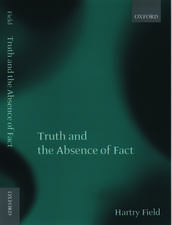Durkheim, Bernard and Epistemology: Routledge Library Editions: Emile Durkheim
Autor Paul Q. Hirsten Limba Engleză Hardback – 15 oct 2010
Preț: 794.14 lei
Preț vechi: 1198.23 lei
-34% Nou
Puncte Express: 1191
Preț estimativ în valută:
152.01€ • 165.17$ • 127.77£
152.01€ • 165.17$ • 127.77£
Carte tipărită la comandă
Livrare economică 21 aprilie-05 mai
Preluare comenzi: 021 569.72.76
Specificații
ISBN-13: 9780415563499
ISBN-10: 0415563496
Pagini: 220
Dimensiuni: 138 x 216 mm
Greutate: 0.57 kg
Ediția:1
Editura: Taylor & Francis
Colecția Routledge
Seria Routledge Library Editions: Emile Durkheim
Locul publicării:Oxford, United Kingdom
ISBN-10: 0415563496
Pagini: 220
Dimensiuni: 138 x 216 mm
Greutate: 0.57 kg
Ediția:1
Editura: Taylor & Francis
Colecția Routledge
Seria Routledge Library Editions: Emile Durkheim
Locul publicării:Oxford, United Kingdom
Cuprins
Part 1: Claude Bernard 1. Claude Bernard’s Epistemology 2. Bernard’s Physiology Part 2: Emile Durkheim’s Rules of Sociological Method 3. Durkheim’s Epistemology 4. Pathology and Morphology 5. Individualism and Holism: Purpose, Functionalism and Social Facts 6. Individualism and Holism: Vitalism and the Social Milieu 7. Conclusion: The Rules of Sociological Method and Durkheim’s Sociology
Descriere
This title, first published in 1975, contains two complimentary studies by Paul Q. Hirst: the first based on Claude Bernard’s theory of scientific knowledge, and the second concerning Emile Durkheim’s attempt to provide a philosophical foundation for a scientific sociology in The Rules of Sociological Method. The author’s primary concern is to answer the question: is Durkheim’s theory of knowledge logically consistent and philosophically viable? His principal conclusion is that the epistemology developed in the Rules is an impossible one and that its inherent contradictions are proof that sociology as it is commonly understood can never be a scientific discipline.





















